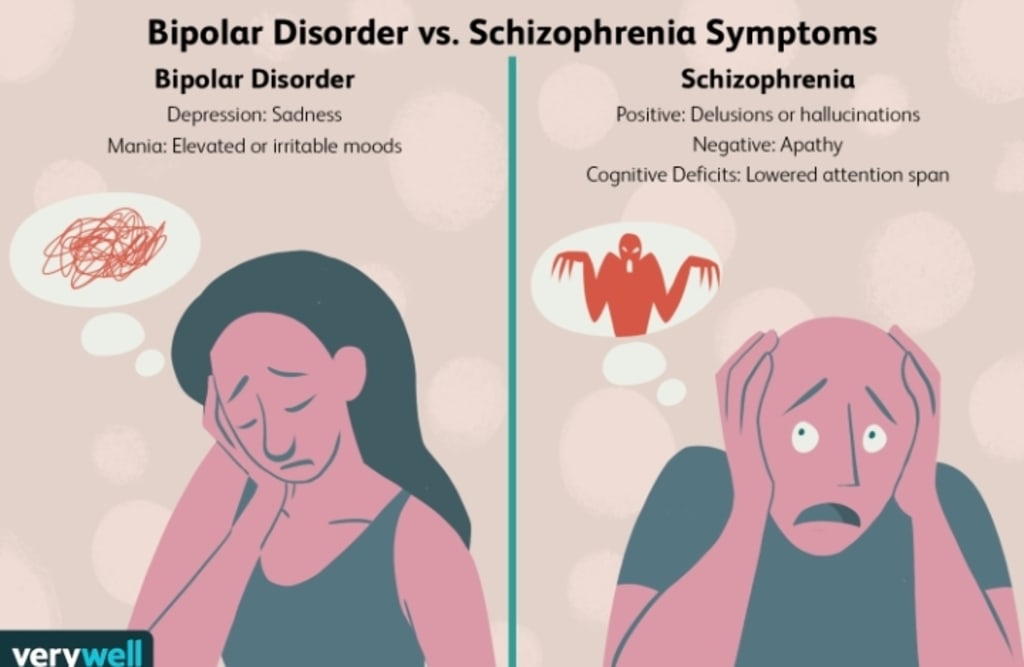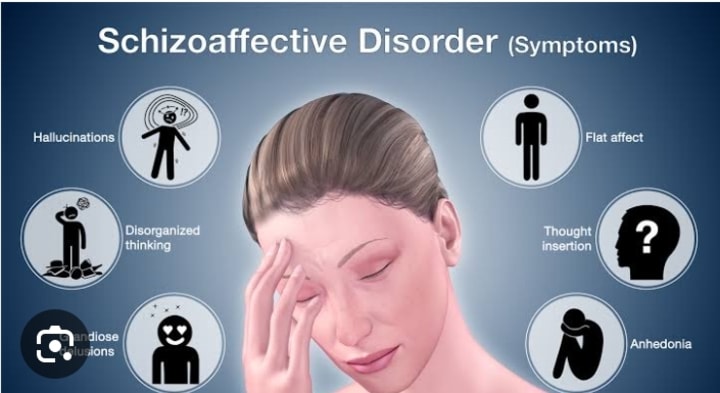
Introduction:
World Schizophrenia Awareness Day sheds light on the distinction between bipolar disorder and schizophrenia, two mental health conditions often misunderstood. While both disorders affect individuals' daily lives, it is essential to recognize their unique symptoms and characteristics. In this article, we will delve into the dissimilarities between bipolar disorder and schizophrenia, as explained by experts in the field.
Bipolar Disorder: Mood Fluctuations and Cycling Episodes
Bipolar disorder is characterized by intense mood swings, encompassing episodes of mania and depression. During manic phases, individuals experience elevated or irritable moods, increased energy levels, racing thoughts, impulsivity, and a decreased need for sleep. Depressive episodes involve persistent feelings of sadness, hopelessness, low energy levels, changes in appetite and sleep patterns, difficulty concentrating, and thoughts of self-harm or suicide. The key feature of bipolar disorder is the cycling between these manic and depressive states.
utilized to address mood regulation and coping strategies. In the case of schizophrenia, antipsychotic medications play a crucial role in managing symptoms, and additional interventions may include psychosocial therapies, support systems, and rehabilitation programs.
Schzophrenia: Disruptions in Thinking and Perception
Schizophrenia is a chronic and severe mental disorder that affects a person's thinking, perception, emotions, and behavior. It is characterized by positive symptoms such as hallucinations (perceiving things that are not there) and delusions (fixed false beliefs). Disorganized thinking and speech are also prevalent. Additionally, negative symptoms may include reduced emotional expression, social withdrawal, and a lack of motivation. Unlike bipolar disorder, which primarily involves mood fluctuations, schizophrenia primarily encompasses disruptions in thought processes and perception, with psychosis being a core feature.
Distinguishing Factors between Bipolar Disorder and Schizophrenia:
Presence of Mood Symptoms: Bipolar disorder is primarily characterized by distinct episodes of manic and depressive states, with mood fluctuations at the center of the disorder. In contrast, schizophrenia is characterized by disruptions in thinking, perception, and behavior, with psychosis (hallucinations and delusions) as a central feature.

Age of Onset: Bipolar disorder often emerges in late adolescence or early adulthood, while schizophrenia is typically more common in males and can manifest at various stages of life.
Management of Bipolar Disorder and Schizophrenia:
Proper management of these disorders is crucial for individuals' well-being. Bipolar disorder is primarily managed with the help of mood stabilizers, antidepressants, and antipsychotics. Psychotherapies may also be utilized for better outcomes. In contrast, schizophrenia is managed primarily with antipsychotics, and somatic treatment methods like MECT (Modified Electroconvulsive Therapy) can be employed. With adequate management, individuals with bipolar disorder and schizophrenia can lead productive lives within their communities.
Key Distinctions between Bipolar Disorder and Schizophrenia:
Mood Symptoms: Bipolar disorder prominently features mood symptoms, with distinct episodes of mania and depression. In contrast, schizophrenia is characterized by disruptions in thinking, perception, and behavior, with psychosis (hallucinations and delusions) as central features.
Age of Onset: Bipolar disorder often emerges in late adolescence or early adulthood, while schizophrenia typically has an earlier onset and can occur at various stages of life.
Management Approaches for Bipolar Disorder and Schizophrenia:
Proper management of bipolar disorder and schizophrenia is vital for individuals' well-being and quality of life. Bipolar disorder is primarily managed with mood stabilizers, antidepressants, and antipsychotic medications. Psychotherapies may also be utilized to address mood regulation and coping strategies. In the case of schizophrenia, antipsychotic medications play a crucial role in managing symptoms, and additional interventions may include psychosocial therapies, support systems, and rehabilitation programs.
Conclusion:
World Schizophrenia Awareness Day serves as an opportunity to dispel misconceptions surrounding mental health disorders. Understanding the distinctive symptoms and characteristics of bipolar disorder and schizophrenia is essential in ensuring appropriate diagnosis and management. By recognizing the dissimilarities between these conditions, we can promote better support, care, and awareness for individuals affected by these mental health disorders.
About the Creator
Monu moun
lthe






Comments
There are no comments for this story
Be the first to respond and start the conversation.